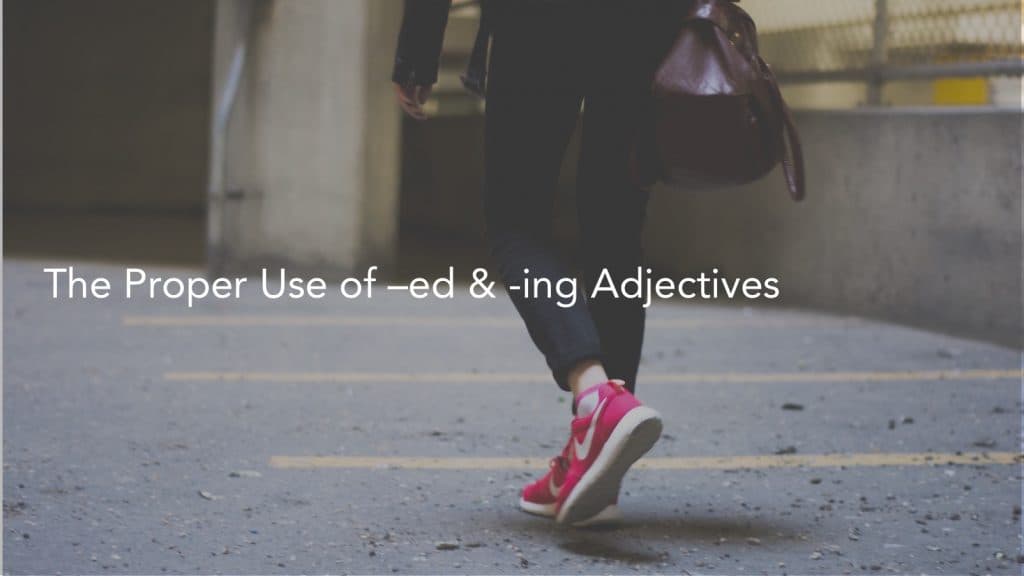“You look very exciting!” OR “You look very excited!” So, which of these is appropriate?
In today’s lesson, we will learn when to properly use adjectives that end in –ed and –ing. If you mistakenly use these adjectives, then you run the risk of being misunderstood.
As a review, what are adjectives? These are words that describe a noun or talk about the qualities of a noun. It answers the question, “what kind?” So, when you talk about a city or a park, you can say it is a big city or a small park.
-ed Adjectives
You use -ed when you talk about how a person feels. Here’s an example.
- I’m not interested in superhero movies.
This means I don’t like watching this type of movie.
- Sam was bored at home.
This means he has nothing to do and just sits there. He’s not interested in anything.
- My mom is annoyed.
This means she feels put off, irritated, and not in a good mood.
-ing Adjectives
You use -ing when you show the effect of something on somebody or something. They are the cause of the feeling. They describe people, places, ideas, animals, situations, and things.
- Watching horror movies is interesting.
- The movie was boring.
- It was quite an annoying day.
This means that it’s a bad day, and it has an effect on you.
Look at these sentences to see how -ed and -ing adjectives are different and when they are actually used:
- I am interested in learning more about Japan because Japan is interesting.
- I am bored with the movie because the movie is boring.
- I am excited to go to this concert because the singers are exciting to watch.
Try this test:
- I don’t know what to do. I am so ______ !
(confused / confusing)
- Wow, two kilometers! That walk was _____.
(exhausting / exhausted)
- The view from our balcony is ______.
(amazed / amazing)
- Have you finally met her? You seem very _________.
(excited / exciting)
- I failed the test again. I am so ______.
(disappointed / disappointing)
- The girl was _______ when she saw the big dog running towards her.
(terrifying / terrified)
- 2. Pete ran away so fast from the darkroom. He was __________!
(frightening / frightened)
You may also try making your own sentences and ask your LingualBox teacher to check your work.

